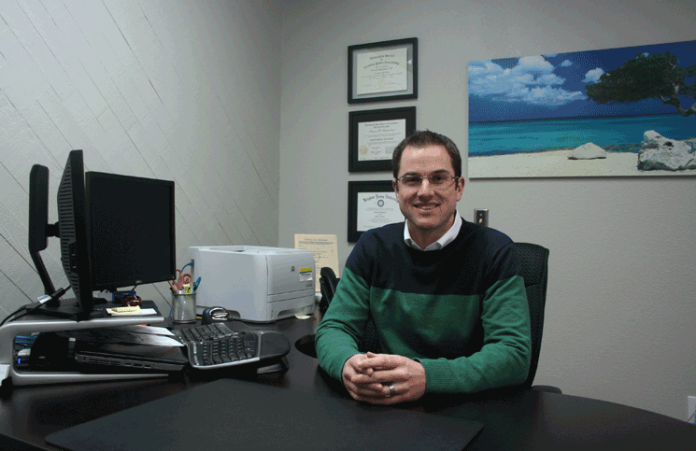Vancouver-area accountants say they’ve felt the squeeze when it comes to recruiting qualified employees this tax season, though some of their hiring challenges are not unique to the accounting world.
At Shields Tax and CPA, a Vancouver-based firm with services ranging from tax planning and preparation to business consulting, financial planning, bookkeeping and payroll, owner Travis Richardson said he wrestles with the seasonal versus year-round hiring dynamic, as many small accounting firms do.
“When I took over the business eight years ago, we were extremely seasonal,” said Richardson. “I had to let everyone go after tax season. But over the last few years we’ve become more year-round through offering additional services. Those that are seeking work are certainly more attracted to year-round work versus seasonal.”
Navigating the transition from seasonal to year-round work hasn’t been easy, Richardson said, and his firm has changed the way it hires to help with those challenges.
“It certainly takes a focused effort, and we are doing a better job at that,” he said. “On our website we let people know that we’re interested in hearing from applicants year-round. We try to keep a dialogue open with applicants and when we have an opening, we’ll be in touch, rather than when we are in dire need to fill a position.”
Currently, Shields Tax and CPA has seven employs – three of them are year-round. Anticipating future growth, the firm recently moved from Main Street in Uptown Village to a larger office at 1924 Broadway Street. Richardson said he hopes to start increasing the number of year-round employees at the firm this year.
Beyond the seasonal versus year-round dynamic, Richardson and other area accountants said hiring employees today is noticeably different than it was just a few years ago.
At Malone and Associates, which has served the local community since 2003, Sean Malone said his firm has struggled recently in getting qualified applicants to submit resumes.
“We advertised online, in the newspaper and with a professional society,” said Malone. “I (received) two résumés that were applicable to what I was looking for. The others were sales associates. My question is why didn’t we get more (qualified) applicants?”
Malone speculated that while there are plenty of people going through accounting education programs, he fears many have simply stopped looking for work.
Richardson said today’s employee pool does seem to be on the smaller side, but he attributes that to a healthy economy.
“What we found during this last hiring season compared to when we first started is that the market is different,” said Richardson. “There are less people unemployed now, especially for administrative positions. Eight years ago I would post an ad on Craigslist and I’d get over 200 applicants within 24-48 hours. Now it’s sparse … the competition is greater and you have to step up your hiring game.”
Meeting the challenge
Given the changing landscape, Richardson said that for the first time his firm utilized a recruiting service to help fill vacant positions this season – though they didn’t end up hiring through them.
“We were able to put together a great team this year, so I’m happy with who we were able to hire … but the last two years I’ve felt that [increased competition for qualified applicants],” he said. “Last year I was slow to bring someone back for a second interview and by the time I did they had accepted another position. So there is competition out there, and we’ve learned the lesson that we have to move quickly when making (hiring) decisions.”
“It’s always a challenge to find new hires,” commented Doug McLain, treasurer at Currie and McLain PS in Vancouver. “As a small/medium sized firm, it can be a challenge to find someone with the breadth of knowledge that we need, if we’re looking for entry-level.”
When a position opens up at Currie and McLain, the firm’s principals often lean on contacts at local educational institutions like Washington State University Vancouver and Portland State University, said McLain.
In Portland’s shadow
Vancouver is a smaller market than Portland, there’s no question about that. However, in the accounting world, not everyone sees that as a challenge when it comes to hiring.
If Portland’s proximity does present an issue for accounting firms in Southwest Washington, Malone said it’s because of market and firm size; the size of firms in Portland may make training easier and more readily available for entry-level professionals.
“For less experienced professionals, there are better training programs with larger firms,” Malone said. “As a smaller firm, I don’t have the budget to send someone away for weeks and weeks of training.”
On the other hand, McLain said Vancouver’s proximity to Portland can actually make it easier to hire because firms can target professionals who may be tired of commuting.
“We typically look for people who don’t want to make that commute into Portland every day,” he said. “They usually save a bit on their taxes by not working in Oregon too.”



